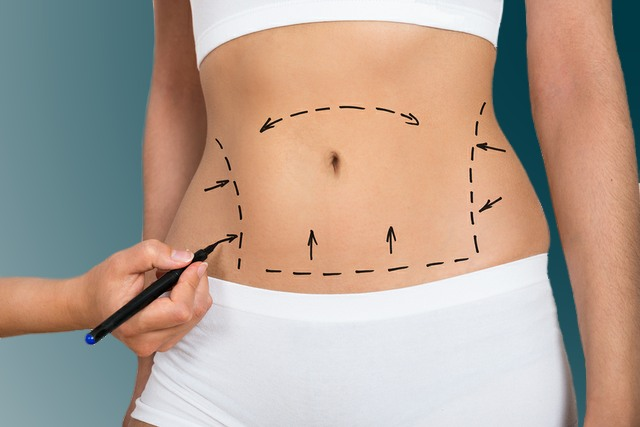SURGICAL
HOME / SURGICAL
Surgical Facial Procedures
Surgical Body Procedures
Abdominoplasty – Tummy Tuck

WHAT IS AN ABDOMINOPLASTY?
Abdominoplasty, best known by the name ‘tummy tuck’, is a procedure specifically designed to enhance the contours and tone of the stomach area or abdomen. During this procedure, the surgeon will remove excess fat and sagging skin to enhance the contour of the underlying tissue. This particular procedure can be done for cosmetic reasons (to improve your appearance) or as reconstructive surgery (in the event of birth trauma or catastrophic weight loss)
WHAT WILL IT DO?
The purpose of this procedure is to remove the “apron” of skin and fat from the patient’s abdominal area and reconstruct damaged musculature. A tummy tuck is one of the most common cosmetic surgeries performed today and is highly successful in reducing a “fat gut” caused by hanging skin and poorly toned abdominal muscles. The result is a toned and attractive “Tummy.”
As mentioned above this procedure may be performed as a cosmetic procedure, or necessary reconstructive course of action. As a reconstructive surgery for health reasons, Abdominoplasty is a vital procedure for correcting or eliminating certain abdominal aberrations caused by traumas such as disease, growths and problematic or multiple birth(s) , as well as catastrophic weight loss. Eliminate the pain and problems caused by the structural defects of the abdomen, strengthen the underlying muscles, and create a “natural looking stomach area”. An overlying apron of fat can also cause a number of health issues including various infections, and chronic skin conditions.
IS IT RIGHT FOR ME?
The decision to undergo Abdominoplasty is highly personal decision, and is not the right solution for everyone. A consultation with your personal Plastic Surgeon will help you decide if it is right for you. Tell your Plastic Surgeon about any health problems, limitations, or concerns that you may have as well as any medications you currently take. Your Doctor will work with you to devise the treatment plan that is best suited to you. Abdominoplasty is not recommended if you: Cannot undergo anaesthesia, have problems with bleeding, have trouble healing properly, or having a high risk of complications due to surgery. Abdominoplasty should not be used in lieu of a proper diet and exercise regimen, nor is it to be considered a “weight loss plan”. If you are planning a substantial weight change in the near future such as losing a large amount of weight, or becoming pregnant it is better to wait before having this procedure. A good candidate for Abdominoplasty is someone who is physically fit and at their desired weight. You should be a non-smoker, and in relatively good health. If you feel that your tummy has gotten too big, and have tried numerous methods to reduce it, this surgery may be right for you.
WHAT ARE THE POTENTIAL RISKS AND COMPLICATIONS?
Keep in mind that Abdominoplasty is major surgery, and while all precautions are taken, it does have the potential for risks and complications to occur. These problems may include infection at the incision site, discomfort or pain at the incision site, hematoma (blood saturating the surgical site under the skin) that could require draining, or prominent scaring, some that could be painful. You can also experience numbness around the incision site, skin tightness, deep venous thrombosis (a blood clot in the chest or leg), or nausea. Your doctor will carefully monitor you after surgery to watch for any problems.
WHERE WILL THE SURGERY TAKE PLACE?
This is normally considered an outpatient procedure and is usually performed in a clinic or outpatient facility. A more complex procedure or complications may necessitate a hospital stay. You should have someone to drive you on that day, and stay with you for 24 hours after you return home.
WHAT DO I NEED TO DO AFTER SURGERY?
You may or may not be sent home with your wounds wrapped in dressings or bindings. You may also be required to wear a stretchy bandage or a solidity garment. This is to reduce puffiness as well as support your abdomen as it mends. Other specialized procedures may be implemented by your surgeon according to your particular needs. Your Surgeon will give you personalized instructions for post-op care. They will cover areas such as caring for the surgical site plus stiches, what medications to use and how to use them, signs to watch for, plus when to chase up with your doctor. Always ask your doctor about any questions or concerns you might have. Communication is a key factor in the success of your procedure as well as your recovery.

